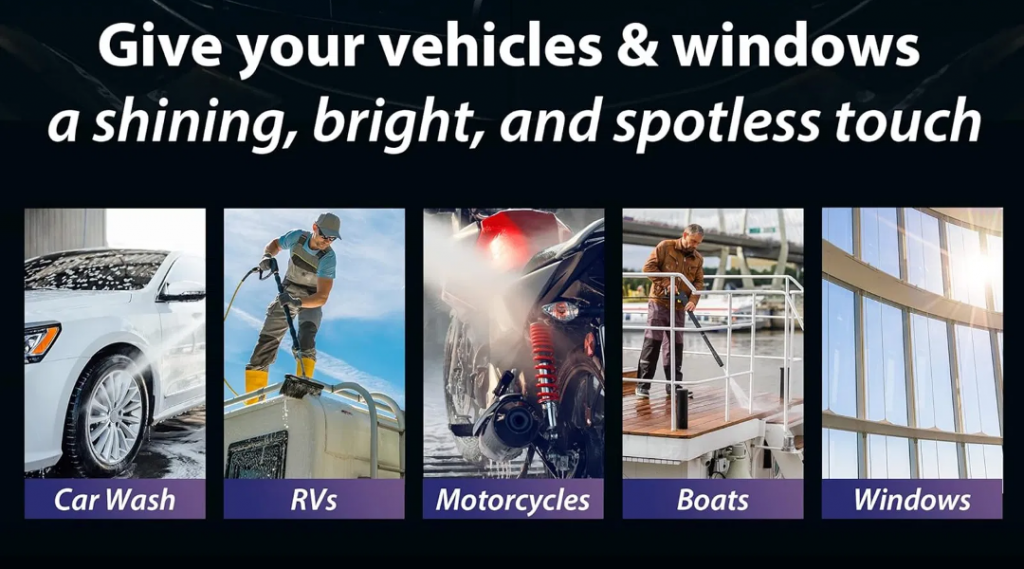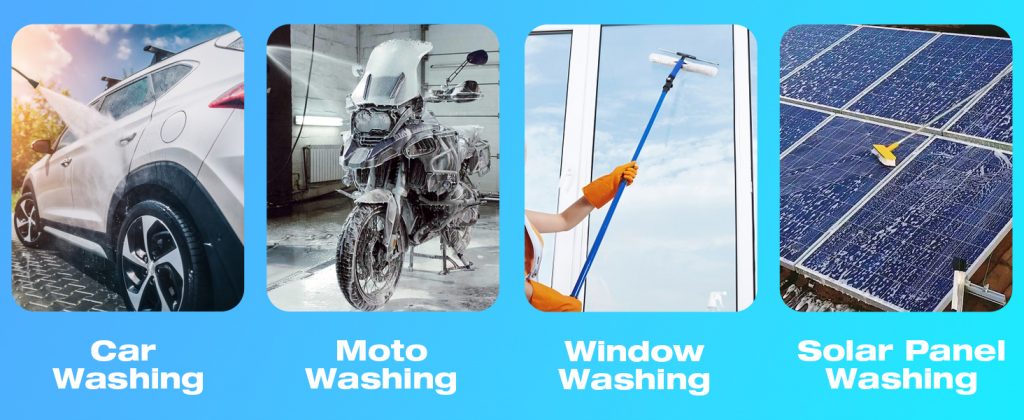
- A spotless car wash system that produces filtered water with zero or near zero TDS (total dissolved solids). Deionized water system is a perfect last step for rinsing your cars, RVs, boats, motorcycles, windows, and more, giving them a shining, bright, and spotless touch.
- A spot free car wash system with easy DIY installation – no additional tools are required. Thanks to the included garden hose quick connector, this deionized water system can be connected and disconnected with your hose within seconds. It works with ¾” GHT garden hose fittings.
- A spotless car wash system with top-notch quality. Depending on your incoming water quality and usage, the 20” DI water filter can last up to 12 months or filter up to 1,200 gallons of water (about 240 rinses for cars or 60 rinses for RVs). The movable metal stand provides strong support for the water filter system and user convenience.
- Please note: this DI water filter system is not designed for drinking water applications of any kind. TDS in your source water will impact the performance of this filter.

Pure water can be made with the use of either a reverse osmosis (RO) system or a deionizer (DI) unit, but there are several factors that are used to determine which unit is best for your application, location, and usage. In good conditions, the best system to use is a DI. All DI water will give you a spot-free rinse. We stock one, two, and three stage systems in three different sizes, which gives you several options. A RO does not produce ultra-pure water like a deionizer, but it will lower the total dissolved solids (TDS) of your water source. Depending on the source water, and if you’re feeding it with soft water, a RO system might not lower the TDS of your source water into the spot-free range. A RO also produces water at a very slow rate and generates a significant amount of water waste to operate, which may require holding tanks and pumps. Larger operations will run a RO into a deionizer, which lowers the TDS and extends the capacity of the deionizer, resulting in a lower cost per gallon.
